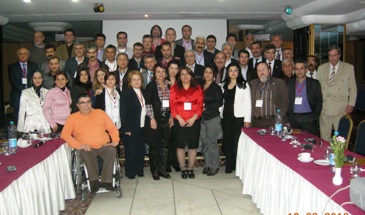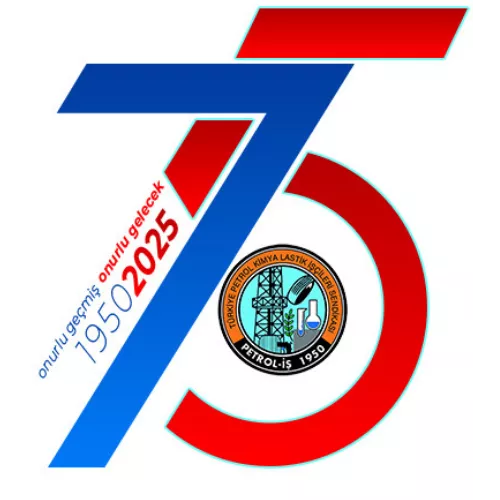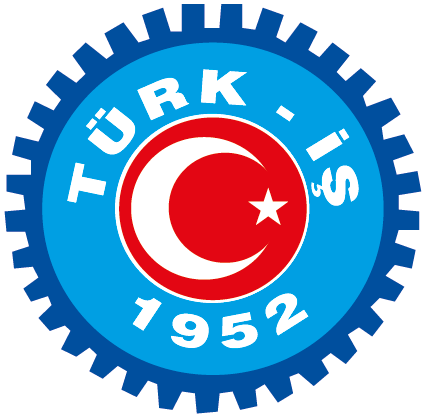
Started in 2009 with the support of the Dutch national labour centre FNV, ICEM’s Organising and Social Dialogue Project in Turkey continued regional seminars last month in the city of Adana in the Cukurova region, where important trade union representation exists, particularly in ICEM sectors.
Adana is an industrialized city in Turkey’s south that has large-scale industries such as textiles, leather, oil and gas, electricity, chemicals, automotive, and food processing. In recent years, Adana’s importance has increased due largely to the construction of the Baku-Tbilisi-Ceyhan (BTC) oil and gas pipeline from the Caspian region in Azerbaijan. Adana claims to be the future “Rotterdam” of Turkey, particularly since another new pipeline will come on line, this one from the Black Sea port city Samsun, which will move oil from Russia. ICEM’s intensive trade union energy activities in the Caspian and the Middle East region are closely connected to Adana and the surrounding Mediterranean area.
With the overall objective to build Turkish unions’ ability to recruit new members, as well as to discuss the establishment of a base to create a functioning industrial relations system, prioritizing human and trade union rights, and to promote healthy social dialogue, this seminar of the FNV project was attended by more than 60 local trade union leaders, shop stewards, and militants from the ICEM affiliated unions.
The seminar also welcomed several international trade union leaders from the Netherlands, France, and Belgium. Celil Çoban and Mail Ürker of FNV Bondgenoten in the Netherlands, Marc Blanc of French FCE-CFDT, and Chris Vanmol of Belgium’s CSC-Chimie Energie exchanged experiences and knowledge from their countries. ICEM Energy Officer Jim Catterson, who was on an oil and gas fact-finding mission in southeast Turkey prior to the seminar, shared his experiences from the UK, where he worked in the trade union movement prior to joining the ICEF/ICEM.
The seminar also heard a presentation from the Turkish trade union expert Üzeyir Ataman, Director of Education and Collective Bargaining of Lastik-İş, on union history and the current labour relations situation in Turkey. Later, the seminar focused on Power and Weak Points, Challenges and Opportunities, and Concrete Organising Targets inside Turkey, with contributions and inputs by participants from the different regions, namely Adana, Mersin, Adiyaman, Batman, and Elazig.
“This seminar in Adana has given great happiness and hope for the future,” said ICEM Rubber and Chemicals Officer Kemal Özkan, who coordinates the two-year project and did a workshop on globalisation and labour relations. “The active involvement and enthusiasm of participants clearly shows that Turkish unions have an important role to play in shaping a society moving towards a real democracy based on fundamental human rights, which, of course, includes trade union rights.”
The FNV project will continue with further regional seminars in the Thrace region in April, and in Gebze in May. The Adana seminar was held 11-12 March. (5 April 2010)





